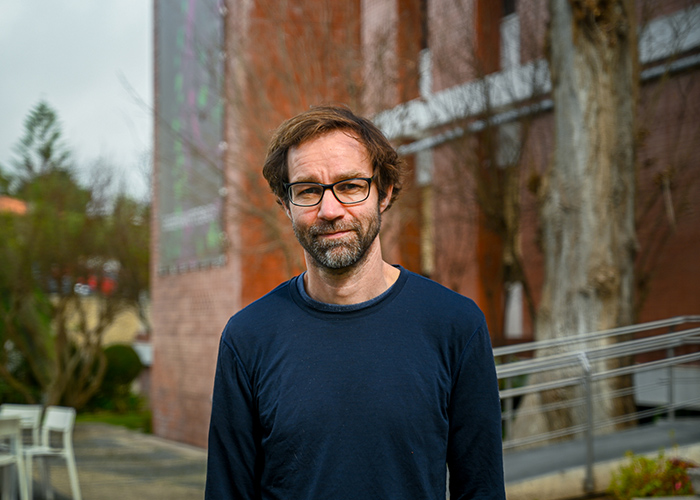Meet the new research leader: Moritz Treeck

Welcome Moritz Treeck
The new IGC group leader is keen to know all the secrets the parasites hold to subvert the immune system. Let us introduce you to Moritz Treeck.
Divided between science and law, Moritz delivered his fate into two sealed applications after finishing school. And biology won! Moritz, originally from Germany, just joined the IGC, after living and working in the US and the UK, to lead a lab focused on host-pathogen interaction, a fascinating research area that intends to understand the strategies parasites use and uncover how they manage to trick the immune system.
Where were you previously and what was your research focus?
I started my research in my home town, in Hamburg, Germany for my PhD. It was on the human infecting malaria causing parasite Plasmodium falciparum and how it invades the red blood cells. This was an exciting time and I discovered that phosphorylation of a type-I transmembrane ligand of the parasite was required for the entry. But even 15 years later, we still don’t know the mechanism behind it. I then went to Stanford, USA for my postdoc as the tools in Plasmodium were limited and I wanted to study the host cell entry process in a genetically and biochemically more tractable parasite. To do that, I moved to John Boothroyd’s lab to study the protein in Toxoplasma, which shares the entry machinery with Plasmodium parasites. There, I rapidly realized the potential for novel quantitative mass-spec methods to measure signaling through phosphoproteomics and went to study kinases, in this parasite, relevant for exit of host cells. From there, I moved to London and started my own lab and married all my previous expertise to work on Plasmodium and Toxoplasma. Because of generous funding we could continue to work on signaling, but made a significant move into host-pathogen interaction.
What will be the main topics you will pursue in the Cell Biology of Host – Pathogen Interaction Lab?
The focus of my research at the IGC will be host-pathogen interaction. We found some fascinating parasite proteins that are secreted into the host cell with some novel powerful genetic and biochemical methods, which we aim to exploit in the coming years to uncover novel ways on how human (and animal) parasites are able to establish their niche in a host and subvert the immune system.
Why parasites infections?
Because they are fascinating! A eukaryotic cell infecting another eukaryotic cell. And they have evolved over millions of years with their hosts and have learned to manipulate them. If we study this aspect, we don’t only learn about the parasites and their strategies and find potential novel therapeutic intervention points, we will also learn new biology aspects about how the host can defend itself against infection.
Name one tool you can’t live without…why?
Allen keys! I use them to repair my bicycle (the best invention in the world), my +40-year-old coffee machine (the most important invention in the world) and to replace the fins of the second-hand surfboard I just bought (the most fun invention in the world).
How important is the IGC to help you foster your research?
I applied for the IGC because it contains a lot of outstanding scientists on a small footprint. It is small enough to have conversations with all, and large enough to have a critical mass. I loved the scientific angle of many groups, all the activities that take place here, and the quality of the core facilities. I was also really taken by the friendly attitude of the community.
What do you want to do in your free time in Portugal?
I would love to buy a campervan to go and explore the country as much as possible with my family. But before that, I will put effort into learning Portuguese, I am eager to speak and talk. I will also spend quite some time in the local waters. I love surfing and scuba diving, and eat some of the amazing food Portugal has to offer!
Welcome to the IGC community, Moritz. We wish you all the scientific success in the future!
